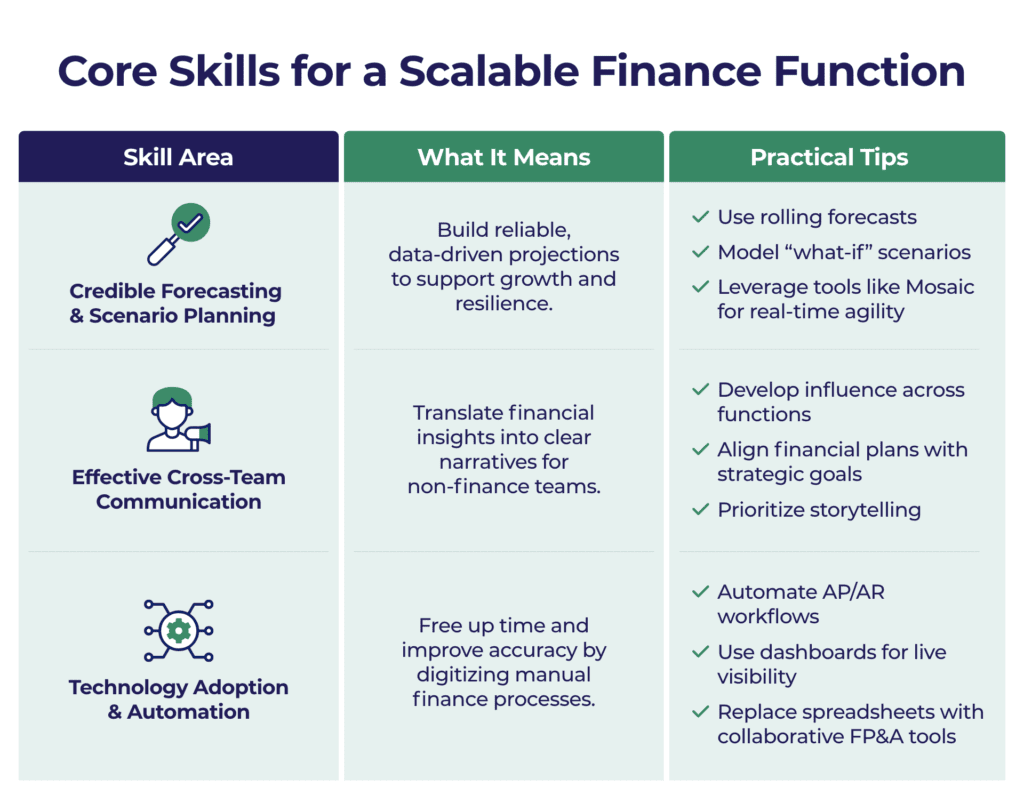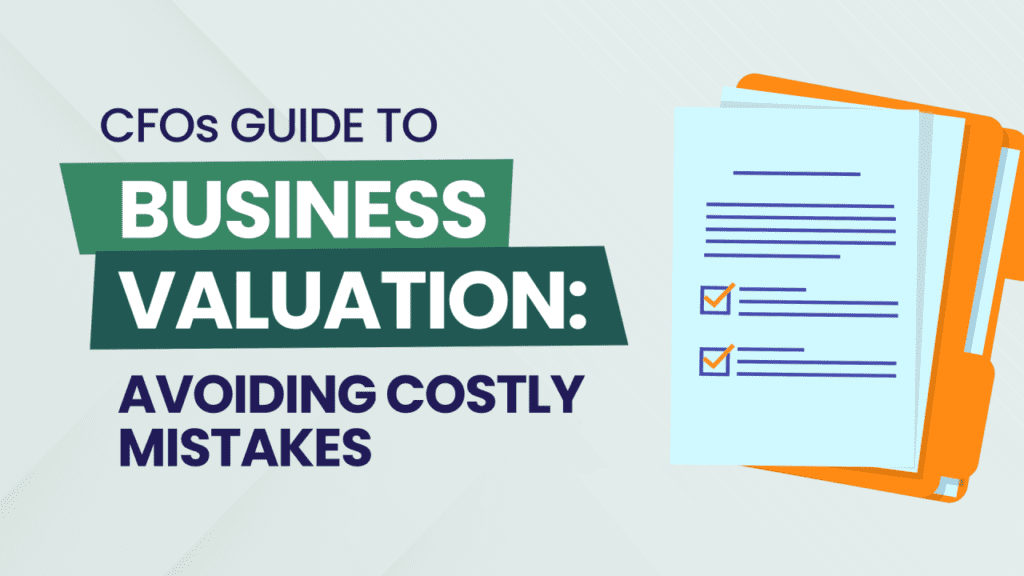How to Scale Finance Function Skills for Growth

What strategies can CFOs use to scale finance team skills and capabilities to support business growth?
To scale finance function skills effectively, businesses must prioritize team scaling, invest in forecasting capabilities, and adopt smarter financial leveraging practices. As companies grow, finance leaders must shift from reactive number-crunching to proactive, strategic guidance—building systems and skill sets that evolve with the complexity of a scaleup environment.
Why Scaling Finance Skills Is Essential for Growth
A high-growth business can outpace its finance function if the team doesn’t evolve with it. Whether you’re entering new markets, preparing for funding rounds, or managing rapid expansion, your finance team must be equipped to scale—operationally and strategically.
As highlighted by FM Magazine and Mosaic, scaleup finance requires modern tools, predictive insight, and cross-functional communication. The finance team becomes a growth partner—guiding decisions, managing risk, and enabling sustainable performance.
What Are the Core Skills Needed in a Scalable Finance Function?
Scaling isn’t just about hiring more people—it’s about increasing the value of your existing team. Here are the essential skills and systems needed to support a growing business:
1. Credible Forecasting and Scenario Planning
Accurate forecasts are the backbone of any financial leveraging strategy. Finance teams must anticipate demand, manage cash flow, and prepare for both best- and worst-case scenarios.
✅ Tip: Implement rolling forecasts and “what-if” models using scalable tools like Mosaic, to enable timely and informed decision-making.
2. Effective Cross-Team Communication
According to Romero Mentoring, soft skills like communication are critical. Finance professionals must not only understand the numbers—they must be able to explain their impact clearly to non-finance stakeholders.
Building influence across teams allows finance to align budgets with strategy and support key initiatives across operations, product, and people functions.
3. Technology Adoption and Automation
Manual tasks slow down scale. Adopting tools for expense management, approvals, reporting, and analytics allows your finance function to operate with agility—even as transaction volumes and data complexity increase.
- Automate accounts payable and receivables
- Build dashboards for real-time visibility
- Eliminate spreadsheet sprawl with collaborative FP&A tools

How to Approach Team Scaling in Finance
As your business grows, the finance team must evolve from tactical operators to strategic advisors. Here’s how to structure team scaling based on your growth stage:
| Growth Stage | Team Focus |
| Early (0–20 employees) | One generalist or fractional CFO focused on cash flow and basic reporting |
| Scaling (20–100) | Add FP&A, controller, and payroll/bookkeeping support for deeper reporting |
| Growth (100–500) | Formalize finance operations, investor reporting, and planning infrastructure |
| Late-stage/Pre-IPO | Build strategic finance team with treasury, compliance, and investor relations |
How Financial Leveraging Supports Scalable Growth
Financial leveraging enables companies to do more with fewer resources—whether through smart debt usage, equity efficiency, or operational cost control. The finance team should help:
- Identify underused capital or cost centers
- Develop financial KPIs tied to strategic initiatives
- Guide capital planning based on return potential
When finance teams have access to strong forecasting models and communicate clearly across functions, financial leveraging becomes a growth multiplier—not a risk.
Practical Tips for Scaling Your Finance Function
Here are six high-impact actions finance leaders can take to scale effectively:
- Invest in tech that grows with you—don’t wait until you’re buried in manual processes
- Build forecast muscle early—drive resource planning with credible, flexible models
- Train for influence—develop soft skills across the team to improve cross-functional alignment
- Map a finance team growth plan—anticipate role needs based on upcoming milestones
- Use data for strategic leverage—move beyond reporting to proactive financial storytelling
- Encourage continuous learning—scaling teams must keep evolving alongside the business
Ready to Scale Your Finance Function with Confidence?
GrowCFO’s Premium Membership equips finance leaders with the frameworks, toolkits, and training needed to scale teams, strengthen forecasting, and build strategic influence. Whether you’re preparing for rapid growth or gearing up for funding, we’ve got the insights and support to help you scale smart.
Access exclusive growth-focused resources here:
Final Thought
Scaling your finance function isn’t just about headcount—it’s about capability. By focusing on team scaling, upgrading systems, and mastering financial leveraging, finance leaders can turn their teams into high-impact growth engines that guide smarter decisions and sustainable success.





Responses